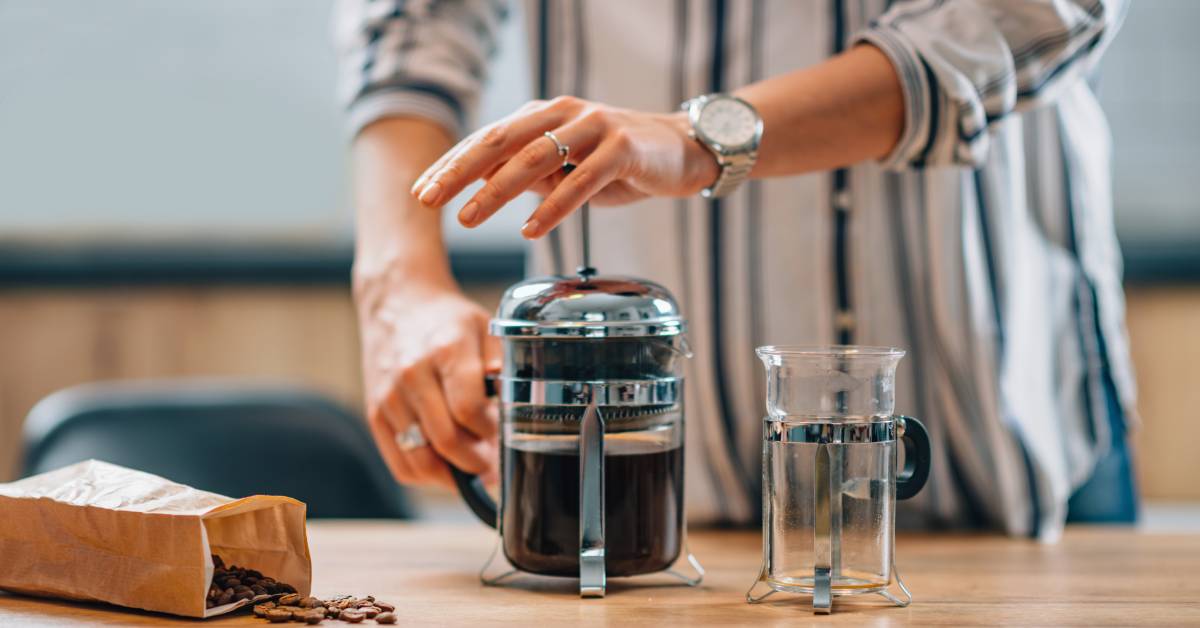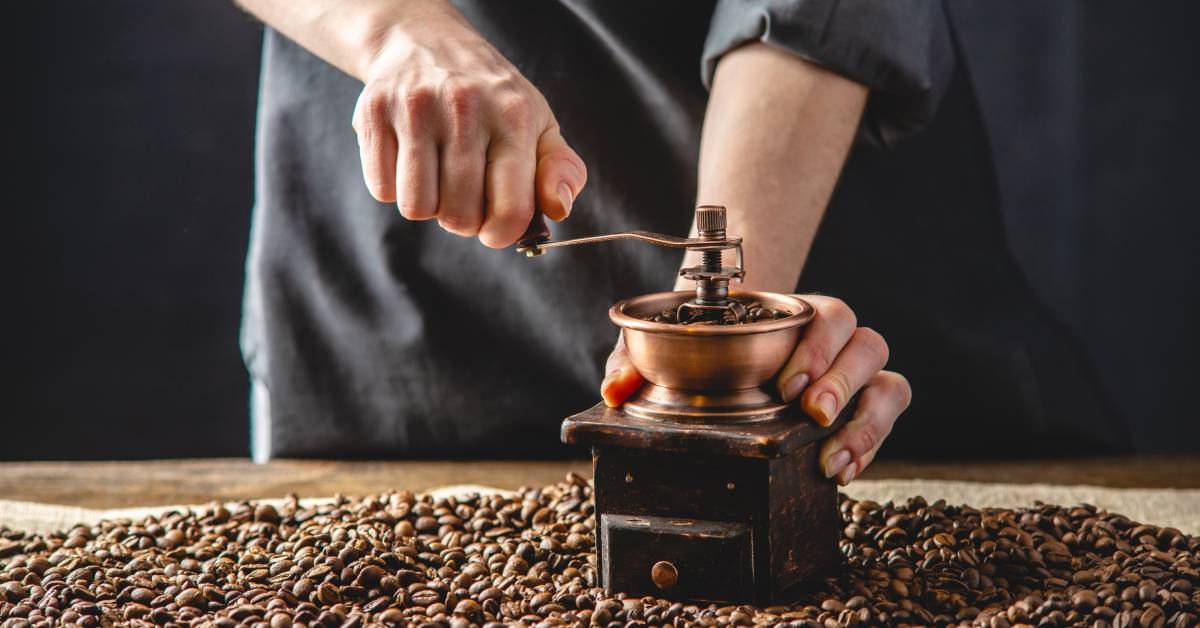The Differences Between Ground Coffee and Whole Bean Coffee
When faced with choosing between ground coffee and whole-bean coffee, the options can seem overwhelming. Understanding these forms of coffee can make a world of difference for enthusiasts eager to deepen their coffee experience. Discover the differences between ground coffee and whole-bean coffee so you can make informed decisions for your next brew.
Whole Bean Coffee Essentials
Whole-bean coffee offers a fresh and aromatic experience for those who enjoy crafting their coffee from scratch. Grinding your beans right before brewing ensures maximum flavor and aroma, providing a richer and more robust coffee experience so you can savor the true essence of your brew.
Whether you prefer a coarse grind for a French press or a fine grind for espresso, whole beans offer the flexibility to match your chosen brewing method. This customization empowers you to control the strength and flavor profile of your coffee.

Ground Coffee Convenience
Ground coffee comes ready for immediate use, appealing to those who value convenience, especially when time is limited. With ground coffee, you simply scoop and brew, making it an excellent option for those who prioritize efficiency without sacrificing taste.
The ease of use stands as a significant advantage of pre-ground coffee, eliminating the need for a grinder and streamlining the coffee-making process. Its widespread availability also adds to its appeal, with various blends and flavors readily available in grocery stores and online. Whether you crave a dark roast or a light, fruity blend, you'll be able to find it in ground form.
Freshness and Aroma
Whole bean coffee maintains its freshness longer because the beans remain intact, preserving oils and flavors within. In contrast, ground coffee loses freshness as soon as it encounters air, with aromatic oils dissipating over time, leading to a less vibrant flavor.
While some ground coffee loses its freshness, Door County Coffee uses a vent that allows air to leave the bag but prevents it from entering. This guarantees freshness similar to whole-bean coffee.
Flavor Complexity
Whole-bean coffee offers an unbeatable depth and complexity as grinding just before brewing allows volatile compounds to fully develop, resulting in a more pronounced and intricate taste. Ground coffee may not offer the same level of complexity since extended exposure to air causes some subtle flavors to fade, leaving a simpler taste profile.
While some ground coffee may not match the robust flavor of whole-bean coffee, Door County Coffee uses class one specialty Arabica beans to guarantee the same freshness as whole-bean coffee. Due to the bean’s high-quality, Door County Coffee’s pre-ground options capture the full spectrum of flavors present in the beans. This provides a dynamic and enriching experience for those who love to explore the diverse world of coffee.
Customization and Flexibility
Whole-bean coffee allows you to customize the grind size, meeting the specific needs of various brewing methods. For instance, a coarse grind works best for French press, while a fine grind suits espresso machines. With whole-bean coffee, you can experiment and adjust the grind size to align with your preferred brewing method to control your coffee's strength and flavor profile.
Ground coffee, on the other hand, comes in a predetermined grind size, limiting your customization options. While it suits standard drip machines, it may not perform as well with other brewing methods.
Shelf-Life Considerations
When it comes to shelf life, whole-bean coffee holds the advantage. Intact beans act as a natural barrier against oxidation, preserving the coffee's quality for extended periods. As such, properly stored whole beans can maintain freshness for several weeks or months.
Ground coffee has a shorter shelf life due to increased air exposure. Once ground, beans become more susceptible to moisture, light, and heat, which can degrade quality. To maximize freshness, store ground coffee in an airtight container away from direct sunlight.

Equipment Needs
Whole-bean coffee necessitates a grinder to achieve the desired consistency, adding an extra step to the coffee-making process but allowing greater control over the final product. Investing in a quality grinder can enhance your coffee experience significantly, especially burr grinders that offer consistent grind sizes and protect flavor integrity.
Ground coffee eliminates the need for additional equipment. You can use it straight from the bag, making it a convenient option for those without a grinder. If you prioritize simplicity, choose ground coffee over whole bean.
Cost and Value
Whole-bean coffee may have a slightly higher upfront cost due to the need for grinding. However, investing in a grinder can lead to long-term savings. Ground coffee often proves more affordable and readily available in various price ranges, providing a cost-effective option for budget-conscious coffee enthusiasts without compromising on taste.
However, Door County Coffee is unique in that their whole-bean and ground coffee are available at the same price point.
Environmental Impact
Both whole bean and ground coffee have environmental implications, primarily related to packaging and waste. Whole bean coffee often comes in larger bags, reducing the need for individual servings and minimizing packaging waste. Additionally, buying whole beans in bulk can further reduce environmental impact.
Ground coffee, though convenient, typically involves more packaging due to individual portions and pre-measured servings, which can lead to increased waste if not properly recycled. For eco-conscious coffee lovers, choosing whole-bean coffee and using reusable containers can help reduce packaging waste while supporting sustainable practices.
Lifestyle Suitability
The choice between whole bean and ground coffee often hinges on your lifestyle and coffee-making preferences. Ground coffee offers unparalleled convenience, making it an ideal option for busy individuals seeking a quick caffeine fix without compromising quality.
In contrast, whole-bean coffee caters to those who cherish the ritual of brewing coffee. Grinding the beans, inhaling the aroma, and carefully crafting each cup can provide a relaxing and rewarding experience. Coffee enthusiasts who view their morning brew as a sacred ritual find a deeper connection to the art of coffee-making with whole-bean coffee, offering them an opportunity to slow down and savor each step of the process.
By understanding the differences between ground coffee and whole-bean coffee, you can make informed decisions that align with your taste and priorities. Whichever path you choose, remember to enjoy, savor, and celebrate your brew. Here's to crafting the perfect brew, one cup at a time!

